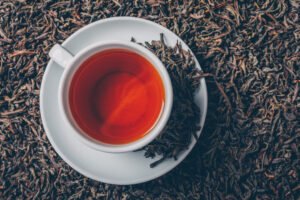Astragalus, an herb used in traditional Chinese medicine for centuries, has attracted great interest within the scientific community due to its potential anti-aging benefits. In this article, we explore everything you need to know about Astragalus and its impact on longevity — with a special focus on its effect on telomeres, essential structures for cellular health. Discover how Astragalus can be your ally in the pursuit of a long and vibrant life.
Also known as Huang Qi, this plant has traditionally been used to strengthen the immune system and promote vitality. Its bioactive compounds, such as saponins and polysaccharides, possess antioxidant and anti-inflammatory properties that may help reduce the negative effects of aging on the body.
Telomeres are the ends of chromosomes that protect the integrity of our genetic material. Over time, telomeres shorten — a process associated with cellular aging and the onset of age-related diseases. Astragalus has been studied for its potential ability to preserve telomere length, thereby slowing cellular aging and promoting a longer, healthier life.
Beyond its effect on telomeres, Astragalus offers a wide range of health benefits. It has been shown to strengthen the immune system, reduce inflammation, improve cardiovascular function, and protect against oxidative stress. These combined effects contribute to greater resilience against disease and an overall better quality of life.
There are several ways to consume Astragalus, such as supplements in capsule, tablet, or liquid extract form. It’s important to follow the manufacturer’s directions and consult a healthcare professional before starting any supplementation. Likewise, it’s essential to consider possible interactions with medications or specific health conditions.
Astragalus stands out as a promising tool to support longevity and promote healthy aging. Its rejuvenating properties and potential to preserve telomere length make it a valuable ally in the quest for a long and vital life. However, further research is needed to fully understand its mechanisms and determine optimal dosages.
References:
Liu Q, et al. Anti-aging effects of Astragalus polysaccharide through the telomerase pathway. Mol Med Rep. 2018 Apr;17(4):6005-6012. doi: 10.3892/mmr.2018.8626.
Li S, et al. Astragalus membranaceus: An Ancient Chinese Herb in the Prevention and Treatment of Metabolic Syndrome. Curr Pharm Des. 2017;23(8):1198-1206. doi: 10.2174/1381612822666161005163015.
Fu J, et al. Astragalus polysaccharides protect against d-galactose-induced liver and kidney injury via antioxidation and immunomodulation. J Food Drug Anal. 2018 Apr;26(2S):S53-S61. doi: 10.1016/j.jfda.2017.10.005.
Liu P, et al. Astragalus polysaccharides protect against dexamethasone-induced osteoporosis in rats. Int J Biol Macromol. 2017 Nov;104(Pt A):1282-1287. doi: 10.1016/j.ijbiomac.2017.06.090.
Cui X, et al. Astragalus polysaccharide enhances immunity and inhibits H9N2 avian influenza virus in vitro and in vivo. J Anim Sci Biotechnol. 2016 Jun 8;7:37. doi: 10.1186/s40104-016-0094-9.




